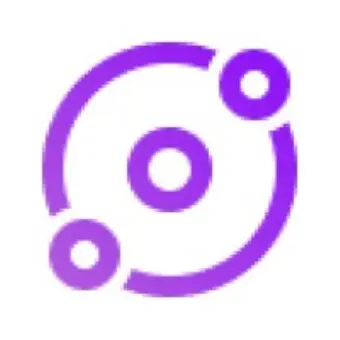Lindy’s Culture

Teamflow
This job is no longer accepting applications
See open jobs at Teamflow.See open jobs similar to "Lindy’s Culture" SV Angel.People & HR
Posted 6+ months ago
Lindy’s Culture
Some of these values are strongly worded, voluntarily so. We realize that some of them will be controversial. Our goal isn't to ruffle anybody's feathers. But we also don't want our values to be corporate platitudes ("a commitment to excellence and integrity as a foundation to customer trust…"). We also recognize that they aren't for everyone. That's fine. We don't mean that this is the only way people should work. It's just our way — and we totally understand and respect people who decide it's not for them.
Lindy’s culture is composed of three pillars:
An elite institution (who we are)
Doing the best work of our lives (what we do)
Moving fast (how we do it)
An elite institution.
Fuck yes or no. We only hire people we're extremely excited about. Everyone has a veto right over anyone who'll join their team — no questions asked. If there’s a doubt, there’s no doubt.
Do’s and don’ts
We care about each other. An elite institution is still a place where it's okay to be going through tough times personally, say "I don't know," or "sorry, I screwed up." We assume best intentions, genuinely care about each other's well-being, and have each other's backs in tough times.
Do’s and don’ts
Candor with care. The best way to improve is to receive a lot of feedback, which we give as often and as quickly as possible. But for feedback to be effective, it needs to be paired with care. The point is never to hurt or to vent your anger — always to improve as a team.
Do’s and don’ts
Doing the best work of our lives.
Thinking on paper. "You can't do much carpentry with your bare hands, and you can't do much thinking with your bare brain." – Albert Einstein When confronted with a problem, we decompose it into parts; read the folks who dedicated their lives to it; and "think on paper" about it. Better, we share this thinking so that everyone can benefit and contribute to it.
Do’s and don’ts
UX > EX — User Experience is more important than Employee Experience Customer experience is infinitely more important than maker experience. We keep the user in mind every step of the way, and go the extra mile to remove every last bit of friction from their life. All the better if it's hard — taking hard things off their shoulders is what customers pay us for. One great example is Apple's first generation Magic Mouse. Every other battery-powered gadget has you put batteries in reverse directions, which is confusing. Apple's Magic Mouse has batteries in the same direction — with a wire behind them to connect opposite poles. Imagine the work involved for a seemingly inconsequential detail, hidden behind a plate, under the mouse, opened once a year. One corollary is that we spend a lot of time with users. It hardly seems radical to spend 5% of your time talking with the folks you spend the other 95% building for. And yet, these 5% represent 2-3 hours a week — significantly more than most people spend talking with users. Related readings: UX and the Civilizing Process, Fast Path to a Great UX, A guide to talking with users.
Do’s and don’ts
Insist on the highest standards, at the deepest level of detail. Never let the idea that details are beneath you: the higher you get, the deeper you must go. First, because you got to a high position because you were good — disabling the brains of the best people in the company would be extraordinarily counter productive. Second, because most problems only reveal their true root cause once you dive to the deepest possible level of detail. Third, because someone must eventually dive deep. Managers deciding not to sends a message that details are unimportant. Don’t let the fear of being perceived as a “micro-manager” prevent you from diving into the details. Your job isn’t to protect people’s feelings. It is to create a better product for our customers — if your diving deep achieves that, that’s all that matters.
Do’s and don’ts
Obligation to dissent; Disagree and commit. If you have concerns, you must voice them. The more uncomfortable the truth, and the more important it is that you speak it. That is even if you must speak against your manager, your manager’s manager, or Flo. None of these people are your boss: the customer is your boss, and he ultimately doesn’t care about our feelings — he only cares about whether we solve his problems. Groupthink takes hold quickly, and you should be terrified of it: it shuts down your brain. Don’t let the HIPPO (Highest Paid Person’s Opinion) win — let truth win. Disagree and commit: once your concerns have been voiced and heard, keep in mind that there is always one single decision maker — ideally, the subject matter expert about whatever is it that is being decided. Most decisions — particularly the ones that are reversible — should be made much faster than they are. Do not let your concerns block the entire group, and accept that you won’t agree with every decision made: disagree and commit.
Do - Question every single requirement — both internal and external ones.
Don’t - Blindly accept a requirement, just because someone said so. Push back, even against lawyers.
Moving fast:
Loading Tweet
Every hour matters Big companies have thousands of employees, millions of users, and billions of dollars. The one advantage we have is speed — slowness is the surest path to failure for a startup.
Do’s and don’ts
Example implications
Be bold. ”It’s kind of fun to do the impossible.” – Walt Disney Most people give up too easily — often, before they even tried. That means that by pushing harder, aiming higher, thinking bigger, you get to a place where there is much less competition — and you get to achieve things that are much more awesome. Plus, it’s kind of fun to do the impossible.
Do - If you have a 10-year plan, ask yourself: why can’t you do it in 6 months? - Give yourself the permission to think crazy ideas. “We’d need like a billion dollars to train this big of a model…” So, should we raise that?
Don’t - Give up before you even tried. - Use other people as your measuring stick (”Google with all their resources couldn’t do any better, what makes us think we can?”).
We put extraordinary effort to build an extraordinary company. We believe that growth happens at the point of failure. But we also recognize the importance of recovery. In practice, this means alternating periods of intense work with periods of "intense recovery," when we really disconnect. It is a Marathon and not a sprint — we just happen to be world-class marathoners.
Do’s and don’ts
Ownership spirit. This is your company, and this is your product. Think absurdly broadly of your job description — you’re not an engineer, or a designer, or a manager. You’re an owner of the company, and you must do everything you can to make it successful.
Do’s and don’ts
Secondary values
We leave our politics at the door. We don’t talk politics at work. This is not driven by ideology — on the contrary, this is for very pragmatic reasons. There are only so many minutes in the day, and every minute spent talking politics is a minute not spent building a better product for customers. Talking politics can take a lot of minutes, and it doesn’t even work. You are unlikely to change anyone’s mind, let alone national policies, and you may even hurt your relationships with your teammates if the issue is emotionally loaded. This means no political talk on work tools like Slack, Notion, Google Docs or, well, Teamflow. Now, we hope you will make friends at Lindy, and what you do on personal channels is none of our business. Places like iMessage, Twitter, Facebook are entirely your turf.
Do’s and don’ts
We don't take shortcuts. "One can use an eraser on the drafting board, or a sledgehammer on the construction site." – Frank Lloyd Wright We use lots of erasers, and few sledgehammers. We conduct user research and usability testing and write RFCs before we build. That does not mean we take it easy — we follow the road, with all its twists and turns, as fast as we can. But we don't go off-road, as we think it actually slows us down on net.
Do’s and don’ts
Frugality. We're a startup. We buy second-hand when possible, and don't tolerate unnecessary expenses.
Transparency. This is your business, and you're entitled to see everything, especially if you are to have enough context to make your own decisions. This includes our financials.
Be yourself. Life is just more fun that way. That doesn't mean you should be self-indulgent and not try to improve; just that you shouldn't feel like you have to build this great wall between your true self and your work self. Allow yourself to be silly at work if that's your thing; and if your kid makes noise in the background while you're in a meeting, don't be embarrassed, just invite them to say hi! (Plus this way they'll be so shy they won't make noise again.)
Superpumped. Startups are at a bigger risk of running out of morale than running out of money. When good things happen, we notice them, celebrate them, and let ourselves express our excitement about them. And when bad things happen, we take stock of the situation and call it for what it is, no matter how dire. But we never let ourselves fall into despair. "Confront the brutal facts, yet never lose faith." Related reading: Shackleton's Way.
Details matter. They're what the product is made of. Even if every detail doesn't get noticed by the user, they'll still infuse your product with a feeling of deep care and craftsmanship. We keep this attention to detail at every step of our development:
When we design, by introducing small delightful interactions.
When we build and think of a nifty way we could make something faster.
Before we ship, when we keep a "friction log" — going through the experience we built over and over again, passing sandpaper over it until everything flows smoothly for the user.
Great artists steal. We feel no shame in stealing good ideas to serve our users. When something works, the only reason we wouldn't copy it would be hubris — "this isn't my idea [hence it's not that good]!" "Copying is beneath me!" This is one of these invisible "optimizing for the maker instead of for the user" moments. Being truly user-obsessed means accepting that users love something, swallowing your pride, and implementing it, regardless of its origin.
Your job isn't done until the job is done. This is stolen from Nike's values, and is a corollary to "we care." When we spot a problem, we never say "someone ought to do something about this," or "that's not my job." Your official title is ancillary to the company's mission — building the best place to work together. Your real job is to do anything it takes to get closer to this.
This job is no longer accepting applications
See open jobs at Teamflow.See open jobs similar to "Lindy’s Culture" SV Angel.
